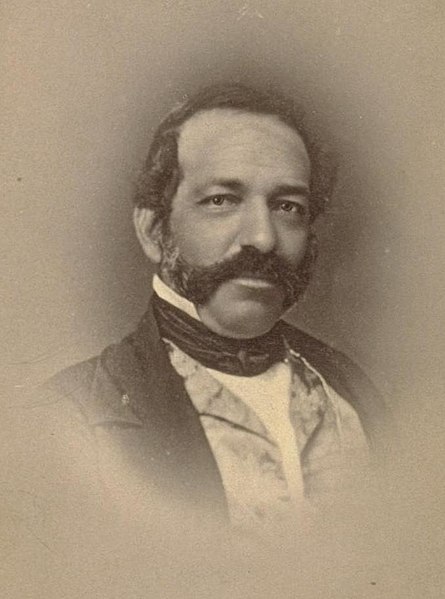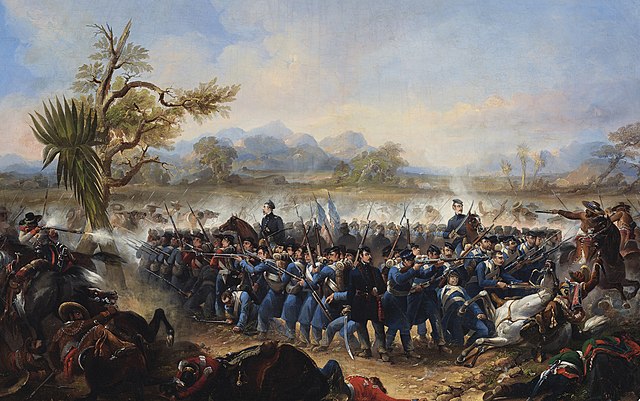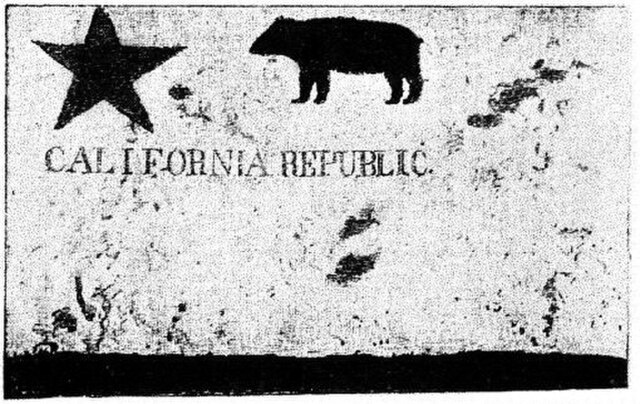The Treaty of Cahuenga, also called the Capitulation of Cahuenga, was an 1847 agreement that ended the Conquest of California, resulting in a ceasefire between Californios and Americans. The treaty was signed at the Campo de Cahuenga on 13 January 1847, ending the fighting of the Mexican–American War within Alta California. The treaty was drafted in both English and Spanish by José Antonio Carrillo and signed by John C. Frémont, representing the American forces, and Andrés Pico, representing the Mexican forces.
Signing of the treaty at Campo de Cahuenga by Andrés Pico and John C. Frémont
Andrés Pico
The Conquest of California, also known as the Conquest of Alta California or the California Campaign, was an important military campaign of the Mexican–American War carried out by the United States in Alta California, then a part of Mexico. The conquest lasted from 1846 into 1847, until military leaders from both the Californios and Americans signed the Treaty of Cahuenga, which ended the conflict in California.
Image: Battle of Río San Gabriel
Image: San Pasqual
General Mariano Guadalupe Vallejo reviewing his troops in Sonoma, 1846
The Bear Flag of California, first raised during the Bear Flag Revolt






